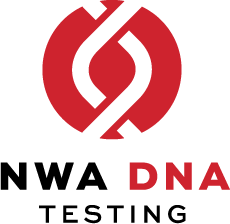Relationship Testing

Maternity – To determine whether a woman tested is the biological mother of the child.
Grandparent – If the possible father is not available for testing, a grandparent test can confirm a family relationship. One or both of the possible father’s parents can be tested.
Siblings – When 2 people are wanting to know if they share the same parent and the mother or father are not available. Full sibling and half sibling test available.
Twins – Also called a twin zygosity – this is the only test to positively confirm whether twins are identical or fraternal.
Avuncular – This test is an option when the possible father is not available for testing and the only relative is a possible aunt or uncle.
Male Lineage – A Y-STR comparison test is to tell if a male is from the same paternal line by sharing the same direct male y-chromosome lineage.
Female Lineage – The mtDNA comparison test uses mitochondrial analysis to confirm relationship through the maternal/female side of a family.
Genetic testing is a valuable resource for substantiating biological relationships in cases where other forms of evidence are lacking, particularly in immigrant visa applications. It is particularly effective for verifying relationships like paternity, maternity, full-siblingship, or half-siblingship but may not be as reliable for distant relationships. DNA testing remains a crucial and widely accepted method for confirming such connections when documentary evidence is unavailable.
DNA testing using buccal swabs is considered the gold standard for determining biological relationships due to its accuracy, ease of collection, and non-invasive nature. The method involves scraping cells from the inside of the cheek, making it a painless and simple procedure. This, coupled with the convenience of shipping swabs, has made buccal swabs the preferred method for DNA testing over blood samples.
